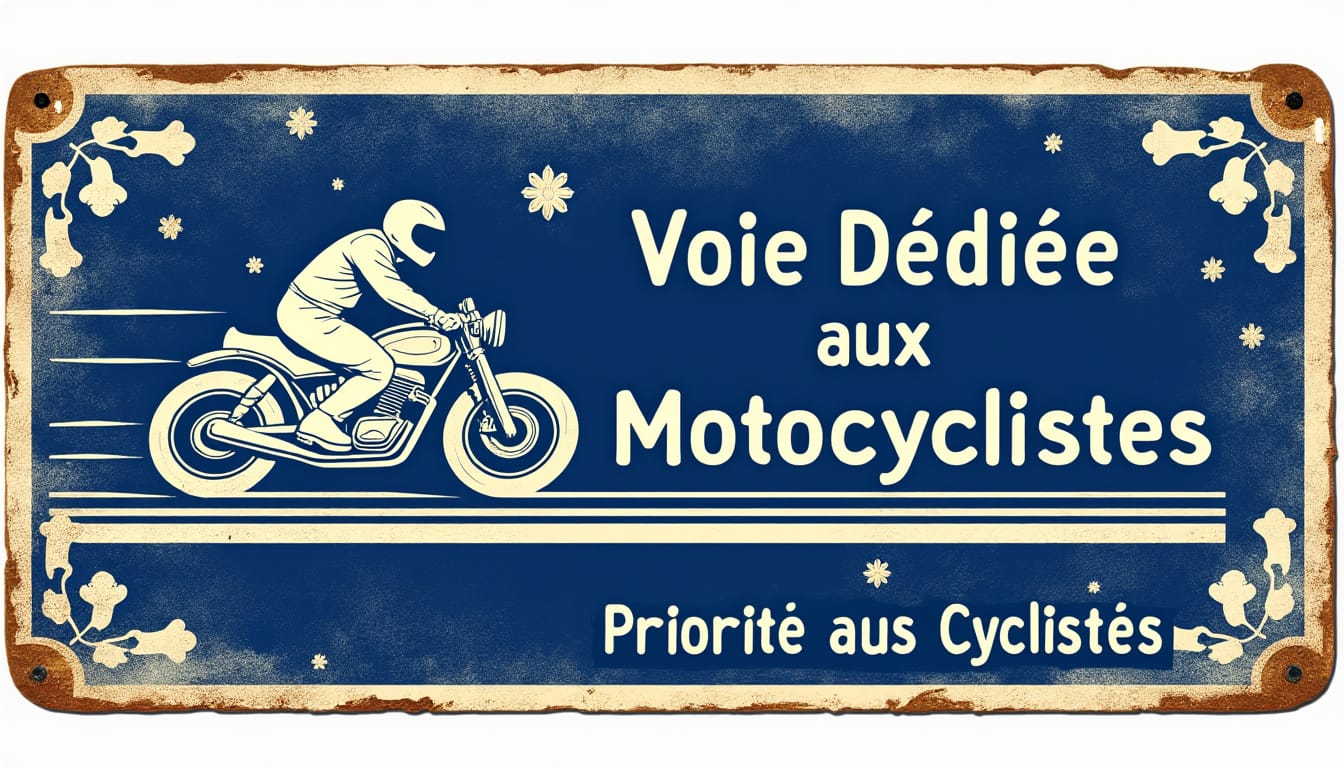A revolution in the highway code: crucial changes for motorcyclists

The landscape of road traffic in France is set to undergo a significant transformation with the introduction of new regulations for motorcyclists. Starting from January 11, 2025, lane splitting will be officially permitted, marking a turning point in driving practices. This reform was announced on January 10 in the Official Journal, echoing a growing demand from road users to improve traffic flow. The impact of this new rule will affect millions of drivers and have significant implications for road safety.
Lane splitting allows motorcyclists to weave between cars, a practice that has been tested for three years in 21 French departments. The positive results of this experimentation have convinced the government to expand it nationwide, while establishing specific conditions to be met. This is a major advancement for two-wheelers, who until now have faced severe restrictions.
The new lane splitting rules
Lane splitting is not merely a permission; it comes with a set of strict rules aimed at ensuring the safety of both motorcyclists and other road users. These standards stipulate, for example, that only motorcyclists riding motorcycles no wider than 1 meter may use this lane.
Another essential criterion for this practice is that the roads concerned must have at least 2x2 lanes with a central reservation and be limited to speeds of at least 70 km/h. This regulatory framework aims to ensure that lane splitting occurs under suitable traffic conditions, thereby minimizing accident risks. Surprisingly, even traffic on the Paris ring road, with its 50 km/h limit, will be allowed for this practice.
Compliance with these rules is critical, as any breach can lead to severe penalties. It is, therefore, essential for motorcyclists to thoroughly understand these new rules and incorporate them into their driving habits.

The conditions for lane splitting
For safe lane splitting, several conditions must be met. Motorcyclists must ensure that the traffic is dense in the vehicle lane before attempting to pass. This means they cannot split lanes when the traffic flow is relatively free.
When overtaking, motorcyclists must remain between the two leftmost vehicle lanes, thereby avoiding venturing between other types of vehicles. Regarding speed, motorcyclists are limited to 50 km/h during overtaking. In case of a traffic jam, it is imperative to slow down to 30 km/h to avoid any risk of accident. These carefully defined recommendations are designed to protect all road users.
Motorcyclists must also be aware of their surroundings. Checking blind spots, using mirrors regularly, and signaling any movements are essential practices for any safe traffic. Adhering to these guidelines is vital to creating a climate of trust between motorcyclists and motorists.
Sanctions for non-compliance with the rules
The implementation of this new regulation is accompanied by sanctions to discourage irresponsible behavior. Indeed, motorcyclists who violate these new rules face a fixed fine of 135 euros. This fine is classified as a 4th class offense and is accompanied by a withdrawal of 3 points from the driver's license.
These sanctions not only aim to ensure compliance with the new provisions but also to promote more responsible driving among road users. The goal is to raise awareness among motorcyclists about the need to respect these rules for their own safety and that of others.
It is essential to stay informed of modifications to the traffic code and understand that non-compliance with these regulations can have significant consequences for road safety. Adhering to the laws is not only an obligation but a shared responsibility among all drivers.

How to raise awareness among motorcyclists about the new rules
In light of these changes, awareness campaigns will be crucial to inform motorcyclists of the new traffic rules. Road safety organizations, along with motorcyclist associations, play a key role in this awareness effort. By providing clear information and training on best practices, they can help ensure a smooth transition to these new regulations.
Social media can also serve as an effective tool to reach a broad audience. Explanatory videos, infographics, and informative articles will help convey the necessary messages. By ensuring that motorcyclists are well-informed, it becomes possible to encourage safer driving on the roads.
Furthermore, practical trainings and workshops can be organized to give motorcyclists the opportunity to learn the new rules directly and ask questions. This will help them not only to understand the changes but also to adopt proactive behaviors on the road.
Toward secure cohabitation between users
With the introduction of this new regulation on lane splitting, the challenge will be to promote a secure cohabitation between different types of vehicles. Motorcyclists, often more vulnerable on the road, must learn to navigate this new dynamic of traffic while ensuring their own safety and that of others. This means raising awareness among motorists about motorcyclists' behaviors and vice versa.
Aware and informative campaigns will also play a fundamental role in this new era of road traffic. By promoting respectful behaviors, the road community as a whole can help reduce accident risks.
Respectful interactions on the road between motorcyclists and motorists are essential to create a safe climate on the roads. This requires a collective commitment to mutually respect each other and adhere to established rules, thereby improving everyone's safety.

Future perspectives for motorcyclists in France
Beyond these significant changes in regulation, it is crucial to consider the future of motorcyclists in France. Lane splitting could pave the way for further innovations and improvements in road infrastructure and regulations aimed at two-wheelers. The success of this regulation will largely depend on the adoption by motorcyclists and the commitment of other users to respect the new rules.
The establishment of dedicated spaces for motorcyclists, ongoing training, and technological advancements in the field of two-wheelers will represent avenues to explore. Motorcyclists make up a significant part of the road landscape, and their safety must be at the heart of public authorities' concerns.
This movement towards more favorable regulation for motorcyclists is a positive sign towards a broader consideration of the needs of this user group. As the future of traffic evolves, motorcyclists will need to adapt, but in return, significant changes on the road could follow.
Leave a Reply



Articles relatifs